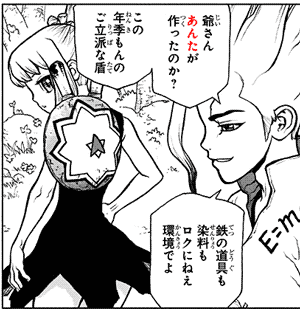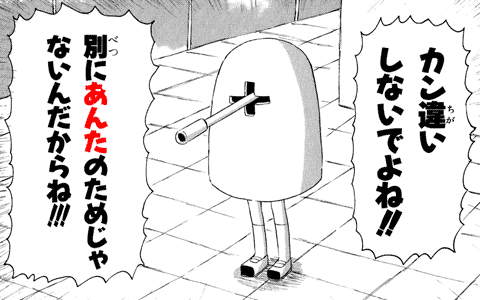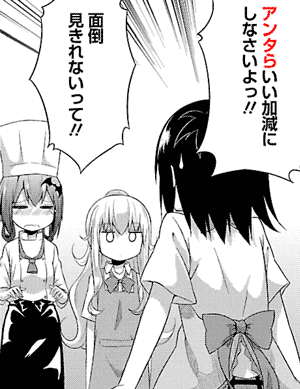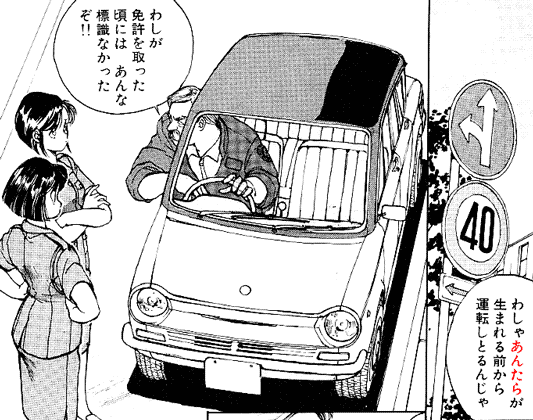In Japanese, anta あんた means "you." It's a second person pronoun, and a corruption of the more polite anata あなた. It's also spelled アンタ, with katakana.
Usage
The pronoun anta is a corruption of anata.(dictionary.goo.ne.jp)
This means that while anata is used in polite, formal contexts, anta is not.
The pronoun anta is mainly used by women, but it's often used by men, too. In particular, it's also used by girls when they're calling out someone angrily, making it commonly used by tsundere ツンデレ characters in anime while they're being tsun つん.(dic.nicovideo.jp)
- Context: a tsundere being a tsundere.
- kanchigai shinaide yo ne!!
勘違いしないでよね!!
Don't get the wrong idea! - betsu ni anta no tame janai-n-dakara ne!!!
別にあんたのためじゃないんだからね!!!
[It] isn't [like I did it] for you [or anything]!!!
Plural
The word anta takes the pluralizing suffixes ~tachi ~たち, ~ra ~ら, or ~gata ~方 to form the plural "you."
- anta-tachi
あんたたち
You and the others. - anta-ra
あんたら
- This is less polite.
- anta-gata
あんたがた
- This is more polite.
The polite anata doesn't take the non-polite ~ra suffix, but the corruption anta does.
Presumably, the reason why anta can take the more polite ~gata in spite of being a corruption is that anata is often used with ~gata, so when anata-gata is corrupted it becomes anta-gata.
For reference, some data:
| ~ra | ~tachi | ~gata | ||||
|---|---|---|---|---|---|---|
| ら | 等 | たち | 達 | がた | 方 | |
| あんた | 157* | 5 | 310 | 22 | 23 | 29 |
| アンタ | 4 | 6 | 10 | 1 | 0 | 0 |
- Note: あんたら yield a few results that were anta rashii あんたらしい instead. I haven't checked the exact count, but it should be around ten or fewer, meaning the plural anta-ra had around 150 results nevertheless.
Examples
The the sake of reference, some examples of anta being used in manga.
- Context: Senkuu 千空 meets the creator of the shield that Kohaku コハク possesses.
- jiisan anta ga tsukutta no ka?
爺さんあんたが作ったのか?
Old-man, [it] was you who made [it]? - kono {nenki mon no} {go-rippa na} tate
この年季もんのご立派な盾
This {outstanding}, {seasoned} shield.- mon もん - contraction of mono もの, "thing."
- nenki
年季
Seasoned. In the sense of accustomed, well-used, well-worn. Because the shield has been used for a good while.
- {tetsu no dougu mo senryou mo roku ni nee} kankyou de yo
鉄の道具も染料もロクにねえ環境でよ
In an environment [with] {practically no iron tools or dyes}- Note: these three lines form a single dislocated sentence.
- anta ga kono tate wo kono kankyou de tsukutta no ka?
あんたがこの縦をこの環境で作ったのか?
You made this shield in this environment?
- Context: Vignette ヴィネット learns the harsh realities of doing group projects.
- anta-ra ii-kagen ni shinasai yo'!!
アンタらいい加減にしなさいよっ!!
You [two], [stop it already]!! - mendou φ mi-kirenai tte!!
面倒見きれないって!!
[I'm telling you] [I] can't take care of [all] the trouble [you two make]!!- mendou wo miru
面倒を見る
To see trouble.
To take care of trouble.
To take care of someone, which is trouble, in the sense of it may cause trouble to you to do it. - ~kiru
~きる
Completely. - mendou wo mi-kiru
面倒を見きる
To completely take care. - mendou wo mi-kireru
面倒を見きれる
To be able to completely take care. - mendou wo mi-kirenai
面倒を見きれない
To not be able to completely take care.
- mendou wo miru
- Context: an old man gets stopped by a couple of policewomen for not obeying a traffic sign.
- washa {anta-ra ga umareru} mae kara unten shitoru-n-ja
わしゃあんたらが生まれる前から運転しとるんじゃ
I have been driving since {before you [two] were born}.- washa わしゃ - a contraction of washi wa わしは.
- shitoru - a contraction of shite-oru しておる, in this case synonymous with shite-iru している.
- ja じゃ - same as the da だ copula, typically used by old men.
- {washi ga menkyo wo totta} koro niwa anna hyoushiki φ nakatta zo!!
わしが免許を取った頃には あんな標識なかったぞ!!
When {I took [my] license} that [traffic] sign didn't exist!!
References
- 貴方(あんた) - デジタル大辞泉 via dictionary.goo.ne.jp, accessed 2021-05-17.
- あんた - dic.nicovideo.jp, accessed 2021-05-17.




No comments: